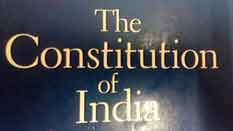Analysis Of Accident As An Exception In The Light Of The Existing And New Penal Code
As it's a well-established fact that every crime is punishable under criminal
law; however, certain exceptions exist to absolve the accused from liability.
Accident stands as one of the most significant exceptions. The term accident
generally is Defined as any mishap beyond human control; hence it exempts
individuals from legal consequences. This article delves into the concept of
accident as stipulated under Section 80 of the Indian Penal Code (IPC).
The main aim of this article is to comprehensively examine accident and misfortune, elucidate the provisions of accident as an exception under Section 80, and outline the essential criteria for its application, accompanied by relevant case laws.
Furthermore, the article endeavors to establish a correlation between this concept and the newly enacted criminal legislation. But before delving in detail, lets understand the basics of it.
It Must Be A Consequence Of Lawful Act Done In A Lawful Manner By Lawful Means:
It Must Be Done With Proper Care And Caution:
'Accident in doing a lawful act-
Nothing is an offence which is done by accident or misfortune, and without any criminal intention or knowledge in the doing of a lawful act in a lawful manner by lawful means and with proper care and caution.
Illustration.
A is at work with a hatchet; the head flies off and kills a man who is standing by. Here, if there was no want of proper caution on the part of A, his act is excusable and not an offence.'[viii]
The Point to be noted here is that along with the text the illustration remains same.
Conclusion:
The legal concept of accident, as outlined in Section 80 of the Indian Penal Code, provides a nuanced framework for determining culpability in unforeseen events resulting in harm. Through a meticulous analysis of legal essentials and case precedents, it becomes evident that accidents are excusable only under specific conditions: they must be truly accidental, lacking any hint of criminal intent or negligence, and must arise from lawful actions executed with due care and caution. The transition to the new criminal penal code maintains these principles, ensuring the consistent application of legal standards. Thus, the legal discourse surrounding accidents remains grounded in principles of justice, balancing accountability with the recognition of genuine misfortune.
End-Notes:
The main aim of this article is to comprehensively examine accident and misfortune, elucidate the provisions of accident as an exception under Section 80, and outline the essential criteria for its application, accompanied by relevant case laws.
Furthermore, the article endeavors to establish a correlation between this concept and the newly enacted criminal legislation. But before delving in detail, lets understand the basics of it.
Meaning of accident and misfortune:
- The term 'accident' has been derived from the 'Latin' term 'accidere' which means to fall, befall, happening or chance. Thus, the term 'accident' is referred as any kind of mishap or misfortune which is not intended by the doer.
- Cambridge Learner's Dictionary defines this term as: 'something bad that happens that is not intended and that causes injury or damage'.
- The term 'misfortune' means the same thing as an accident plus that it was as unwelcome as it was unexpected.
Accident in doing a lawful act (section 80):
Section 80 of the 'Indian Penal Code' states, 'Nothing is an offence which is done by accident or misfortune, and without any criminal intention or knowledge in the doing of a lawful act in a lawful manner by lawful means and with proper care and caution.' It means that if any act which is offense in general, is occurs unintentionally during the lawful execution of an action, without criminal intent or knowledge, it is not considered an offense, provided that the given essentials must be fulfilled for the same.Essentials of accident:
- The act must be a mere accident or misfortune.
- The act must not be done with any criminal intention or knowledge.
- It must be a consequence of lawful act done in a lawful manner by lawful means.
- It must be done with proper care and caution.
- The first essential of IPC is that the act must be clear accident or misfortune. To be more precise, in the accident, the human fault should not be involved, and the less probability of the accident must be happened. In other words, mere chance doesn't amount here; rather the chance must be as lesser as a person with reasonable prudent cannot foresight.
- In Sukhdev Singh v. Delhi State (Govt. of NCT of Delhi), (2003), the accused intentionally shot the deceased during the altercation, the Hon'ble Supreme Court rejected granting the benefit of Section 80 to the accused (appellant), as his action was not accidental.
- In Girish Saikia v. State of Assam, (1993), during a scuffle initiated by his brother, the accused attempted to defend himself with a bamboo. However, their father intervened, resulting in the accidental fatal blow.
The Hon'ble Gauhati High Court ruled that the accused had not committed an offense under Section 80's exception and acquitted him.
- The second essential of this section is that the act done must not be done with criminal intent. In other words, to avail this section, the 'mens rea' (guilty mind) and knowledge must not be present in the act.
- In Atmendra v. State of Karnataka, (1998), [iv] The accused claimed that firing at the deceased was accidental, attributing it to a swinging reaper hitting the gun. However, no such reaper was discovered at the scene, and ballistic experts confirmed the close-range firing. Additionally, evidence indicated a dispute between the accused and the deceased.
It Must Be A Consequence Of Lawful Act Done In A Lawful Manner By Lawful Means:
- The third essential of this section is that the act must be an outcome of lawful act done in a lawful manner by lawful means. The point to be noted here is that all three things namely, outcome or consequence of lawful act, lawful manner and lawful means must be present in an act. It means that if either of three is not present, this defence cannot be availed.
- In Tunda v. Rex (1949),
- The two persons were involved in a wrestling match and during the match one person got injured and consequentially, died.
- The High Court exempted the other from the liability as there was no evidence of foul play. Both participants impliedly consented to the risk of injury, making the incident accidental and unintentional.
It Must Be Done With Proper Care And Caution:
- To avail the defense under this section, along with the above-mentioned essentials, the fourth essential i.e. proper care and caution must also be fulfilled. Proper care and caution mean reasonable and sufficient care and caution according to the circumstance of the case. In other words, the care must be as sufficient as a person with the reasonable prudent can do.
- In State Government of Madhya Pradesh v Rangaswamy (1952), The accused, mistaking a person for a hyena, shot at them from a distance of 152 feet. Due to rain and poor visibility, he didn't expect a person to be there. It was held that the act of causing death was purely an accident and the accused was protected under section 80.
- In Bhupendrasinh a Chudasama v State of Gujarat (1998), The accused constable, on patrol duty with the head constable at a rain-threatened dam site, fired upon seeing a fire without confirming the target's identity. The Hon'ble Court held that the act was done without any care and caution. His conviction for murder was upheld.
- In Sita Ram v State of Rajasthan (1998), While digging with a spade, the accused unintentionally struck the deceased on the head as they collected mud. Despite knowing other workers would be present, the accused failed to exercise proper care and caution. The Rajasthan High Court convicted him under Section 304A of the IPC due to negligence.
Status Of Accident In The New Criminal Penal Code:
As section 80 under chapter 4 of the existing penal code (the Indian Penal code, 1860) deals with the exception of accident; but in the new Penal code (The Bharatiya Nyaya (Second) Sanhita, 2023), under chapter 3, section 18 deals with the same. Nothing has been added/ amended in this particular section. Section 18 reads under:'Accident in doing a lawful act-
Nothing is an offence which is done by accident or misfortune, and without any criminal intention or knowledge in the doing of a lawful act in a lawful manner by lawful means and with proper care and caution.
Illustration.
A is at work with a hatchet; the head flies off and kills a man who is standing by. Here, if there was no want of proper caution on the part of A, his act is excusable and not an offence.'[viii]
The Point to be noted here is that along with the text the illustration remains same.
Conclusion:
The legal concept of accident, as outlined in Section 80 of the Indian Penal Code, provides a nuanced framework for determining culpability in unforeseen events resulting in harm. Through a meticulous analysis of legal essentials and case precedents, it becomes evident that accidents are excusable only under specific conditions: they must be truly accidental, lacking any hint of criminal intent or negligence, and must arise from lawful actions executed with due care and caution. The transition to the new criminal penal code maintains these principles, ensuring the consistent application of legal standards. Thus, the legal discourse surrounding accidents remains grounded in principles of justice, balancing accountability with the recognition of genuine misfortune.
End-Notes:
- The Indian Penal code, 1860 (act 45 of 1861) s 80.
- 2003 7 SCC 441
- 1993 SCC OnLine Gau 49
- 1998 4 SCC 256
- 1949 SCC OnLine All 161
- 1998 2 SCC 603
- 1998 Cr LJ 287
- The Bhartiya Nyaya Sanhita, 2023 (act 45 of 2023) s. 18
Law Article in India
Legal Question & Answers
Lawyers in India - Search By City
LawArticles
How To File For Mutual Divorce In Delhi

How To File For Mutual Divorce In Delhi Mutual Consent Divorce is the Simplest Way to Obtain a D...
Increased Age For Girls Marriage

It is hoped that the Prohibition of Child Marriage (Amendment) Bill, 2021, which intends to inc...
Facade of Social Media

One may very easily get absorbed in the lives of others as one scrolls through a Facebook news ...
Section 482 CrPc - Quashing Of FIR: Guid...

The Inherent power under Section 482 in The Code Of Criminal Procedure, 1973 (37th Chapter of t...
The Uniform Civil Code (UCC) in India: A...

The Uniform Civil Code (UCC) is a concept that proposes the unification of personal laws across...
Role Of Artificial Intelligence In Legal...

Artificial intelligence (AI) is revolutionizing various sectors of the economy, and the legal i...








Please Drop Your Comments